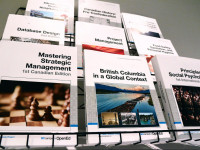Canadian Heritage Minister Melanie Joly launched her review of CanCon rules last spring by stating that “everything is on the table.” The pre-consultation revealed a sharp divide between industry and the public with industry stakeholders emphasizing more public and government support and the public focusing on efforts to promote Canadian content.
This week I obtained government documents under the Access to Information Act that provide some interesting insights in the behind-the-scenes process that brought a major government consultation from concept to launch in a matter of weeks. The roughly thousand pages show Canadian Heritage officials worked long hours to develop timelines, consultation documents, communications plans, and advisory committees. Given the time constraints, it is an impressive effort.
The documents also highlight internal thinking on several major issues, including Netflix regulation, the CRTC’s Let’s Talk TV rulings, and copyright.











